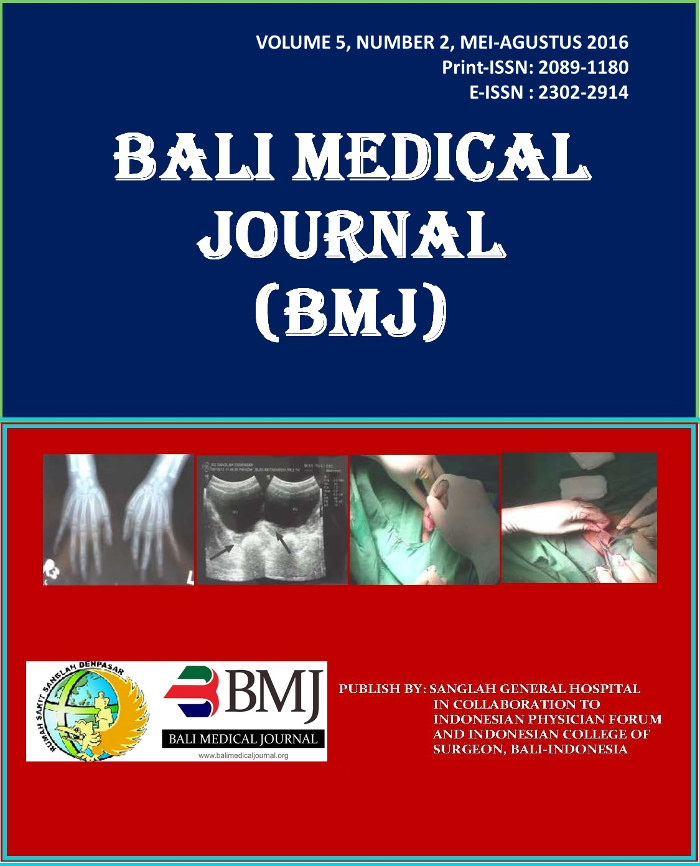Correlation between Nerve Growth Factor (NGF) with Brain Derived Neurotropic Factor (BDNF) in Ischemic Stroke Patient
Abstract
Background: The neurotrophins nerve growth factor (NGF) and brain derived neurotrophic factor (BDNF) is a family of polypeptides that play critical role during neuronal development, appear to mediate protective role on neurorepair in ischemic stroke. Naturally in adult brain neurorepair process consist of: angiogenesis, neurogenesis, and neuronal plasticity, it can also be stimulated by endogenous neurorepair. In this study we observed correlation between NGF and BDNF ischemic stroke patient’s onset: 7-30 and over 30 days. Methods: This is cross sectional study on 46 subjects aged 38 – 74 years old with ischemic stroke from The Indonesian Central Hospital of Army Gatot Subroto Jakarta. Diagnosis of ischemic stroke was made using clinical examination and magnetic resonance imaging (MRI) by neurologist. Subjects were divided into 2 groups based on stroke onset: 7 – 30 days (Group A: 19 subjects) and > 30 days (Group B: 27 Subjects). Serum NGF levels were measured with ELISA method and BDNF levels were measured using multiplex method with Luminex Magpix. Results: Levels of NGF and BDNF were significantly different between onset group A and B (NGF p= 0.022, and BDNF p=0.008), with mean levels NGF in group A higher than group B, indicating that BDNF levels is lower in group A than group B. There was no significant correlation between NGF and BDNF levels in all groups. Conclusion: The variations in neurotrophic factor levels reflect an endogenous attempt at neuroprotection against biochemical and molecular changes after ischemic stroke. NGF represents an early marker of brain injury while BDNF recovery is most prominent during the first 14 days after onsite but continuous for more than 30 days. There is no significant correlation between NGF and BDNF in each group.Downloads
Download data is not yet available.
Published
2016-05-03
How to Cite
WIDODO, Joko et al.
Correlation between Nerve Growth Factor (NGF) with Brain Derived Neurotropic Factor (BDNF) in Ischemic Stroke Patient.
BALI MEDICAL JOURNAL, [S.l.], v. 5, n. 2, may 2016.
ISSN 2302-2914.
Available at: <https://ojs.unud.ac.id/index.php/bmj/article/view/21797>. Date accessed: 08 feb. 2026.
Issue
Section
Articles
Keywords
Ischemic Stroke, NGF, BDNF


